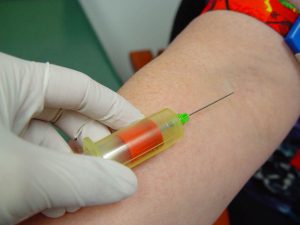July 15, 2018, Dr Chee L Khoo
Diabetes can be diagnosed if fasting glucose is >7.0 mmol/L, 2 hour post prandial > 11.0 mmol/L and/or HbA1c >6.5. However, clinical guidelines recommend that we repeat testing within a “short period of time” to reduce the possibility of a false positive result. Sometimes, repeat testing may not be possible or not uncommonly, patients may be lost to follow up. It is tempting to jump the gun and do away with subsequent confirmatory testing. So, is one blood sample enough to confirm the diagnosis? What if we do both a fasting glucose and HbA1c together? Does it help to clarify the diagnosis better?
In a recent prospective cohort study, 12268 participants with undiagnosed diabetes were follow up for up to 15 years. At baseline, 978 participants had either an abnormal fasting glucose or HbA1c or both. They were deemed to have confirmed undiagnosed diabetes if both fasting and HbA1c were abnormal or unconfirmed undiagnosed diabetes if only one test was abnormal. 39% had confirmed undiagnosed diabetes while 61% had unconfirmed undiagnosed diabetes.
Over the first 5 years, those who were confirmed undiagnosed diabetes had specificity of 98%. Specificity relates to the test’s ability to correctly reject patients without diabetes. This means 98% who were negative for both tests truly did not have diabetes (true negative) over the 5 years. In other words, if you did not fail both tests, then it is unlikely that you have diabetes.
However, the sensitivity of confirmed undiagnosed diabetes was only 55% at 5 years. Sensitivity refers to a test’s ability to correctly detect patients who do have the condition. This means it was only able to pick up 55% of participants who may have diabetes.
The 15-year positive predictive value for confirmed undiagnosed diabetes was 89% compared with 71% for those who were unconfirmed undiagnosed. This means that of those that were deemed confirmed undiagnosed diabetes, 89% of them actually had diabetes.
So, how does this study inform us?
Patients who fail the tests for diabetes whether fasting glucose or HbA1c or both in one blood sample, a second test is probably still warranted. This is particularly true if there are legal implications with the diagnosis e.g. truck or train drivers. Having said that, these patients are highly likely to develop diabetes in the very near future. Over the following 15 years, 89% will have diabetes diagnosed. We don’t have to wait till the diagnosis is confirmed before instituting lifestyle changes. In this study, confirmed undiagnosed diabetes was significantly associated with cardiovascular and kidney disease and mortality.
Patients who pass the tests are unlikely to have diabetes (at that time). This is reassuring.
Many of us are already ordering both tests in patients with risk factors for diabetes. This study helps informs us about the results of the tests.
Access the abstract here.
Reference
E Selvin, D Wang, K Matsushita, ME Grams, J Coresh. Prognostic Implications of Single-Sample Confirmatory Testing for Undiagnosed Diabetes: A Prospective Cohort Study. Ann. Intern. Med 2018 Jun 19
